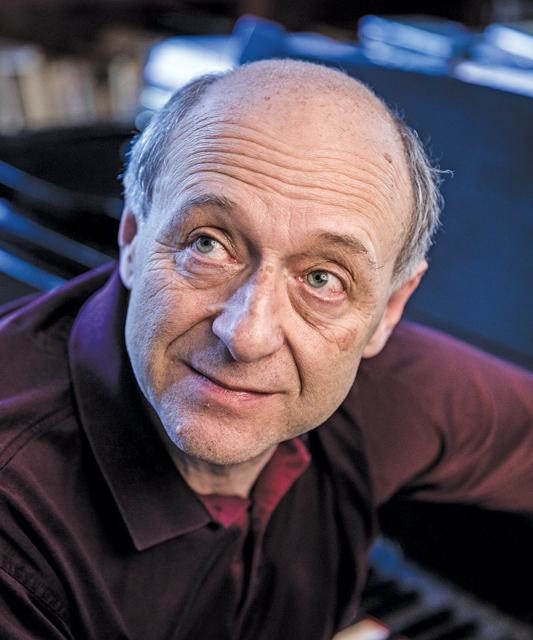The Budapest Festival Orchestra’s conductor and co-founder Ivan Fischer is a master at presenting traditional classical music in an unconventional manner. He is also motivated by an unshakable humanitarian philosophy, and speaking out against intolerance, oppression and the persecution of targeted ethnic groups. Fischer’s public response to Hungary’s increasingly right-wing authoritarian government has included holding concerts in abandoned and repurposed synagogues–a bold move for a man whose grandparents were murdered in Nazi concentration camps, and whose parents survived the Holocaust by going into hiding. During the 1990s, Fischer invited choirs from war-torn Croatia, Serbia, and Bosnia to convene in Budapest, where under his direction 800 voices sang Schiller’s egalitarian “Ode to Joy” in the finale of Beethoven’s Ninth Symphony.
This month, Fischer and the BFO will pre-sent an evening of music by Antonin Dvorak at Hill Auditorium. The concert will open with one of Dvorak’s Legends, from a cycle inspired by the work of Karol Jaromir Erben, an accomplished versifier and folklorist who collected well over 2,000 Slavic fairy tales. The BFO is unique among symphony orchestras in that some of the players also perform as a choir. On this evening they will sing “Misto Klekani,” a setting of verses by Dvorak’s other favorite poet, Adolf Heyduk. The title, usually given in English as “Evening’s Blessing,” translates directly from Czech as “A Place for Kneeling.” After the choir members resume their seats, the orchestra will launch into a lively skocna, or reel, from the ever-popular Slavonic Dances.
Slavic ancestry is not required for a listener to be moved by Dvorak’s Violin Concerto, but I can testify that whenever I hear its first movement, my East European DNA rears up and wants to howl like a Eurasian wolf. Special guest violinist Renaud Capucon’s performance of this exciting work will mark his UMS premiere.
Like Leos Janacek, the greatest Czech composer of the twentieth century, Dvorak heard music in everything around him. Standing near Niagara Falls in 1893, he commented that the cascading tons of water sounded to him like a symphony in B Minor. Birdsong is woven into many of his works, including the Symphony no. 8, composed during the autumn of 1889 at his farmhouse retreat near the village of Vysoka, about thirty miles southwest of Prague. The Eighth, which will cap the BFO’s evening with Antonin Dvorak, is a marvelously personal opus, directly inspired by the composer’s early morning walks through pastoral Bohemian forests and meadowlands.
Let’s close by invoking the spirit of composer Edward Elgar, who once confided to a friend: “I wish you could hear Dvorak’s music. It is simply ravishing, so tuneful and clever, and the orchestration is wonderful. I cannot describe it. It must be heard.”
The University Musical Society presents the Budapest Festival Orchestra at Hill on February 20


